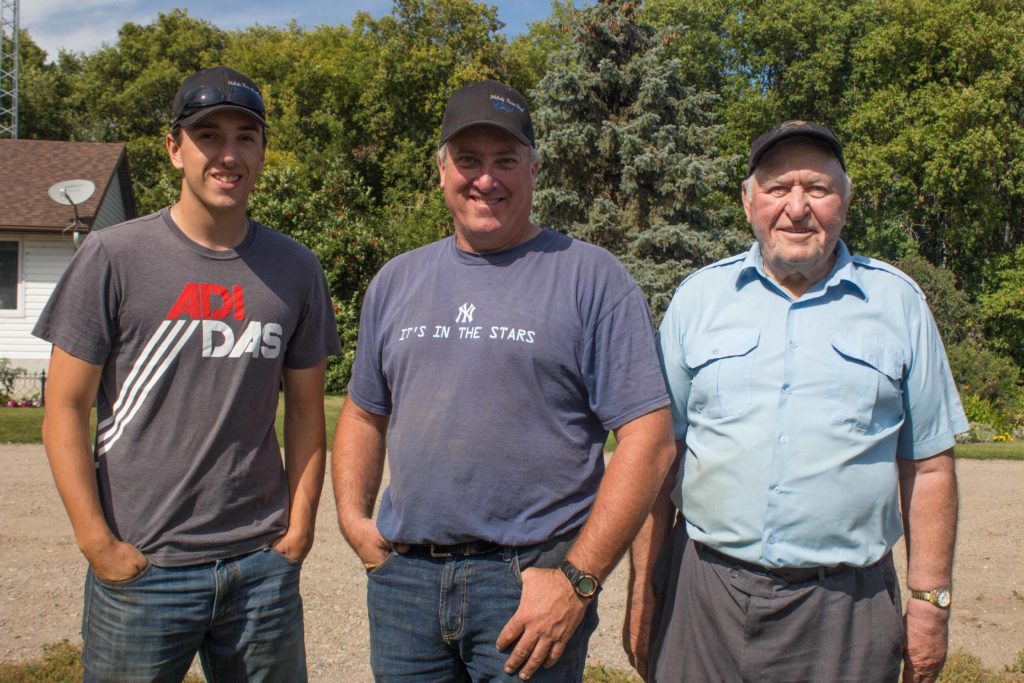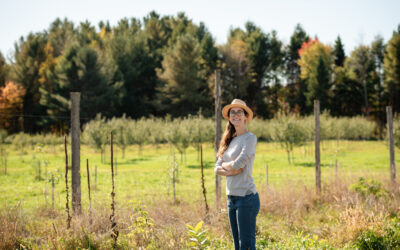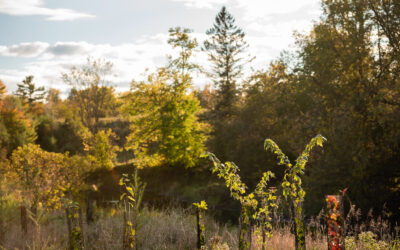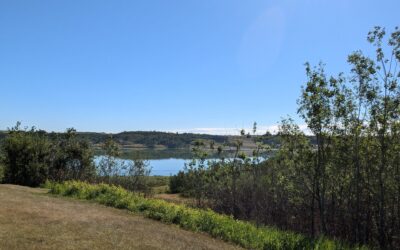The English family create dynamic ecosystems and manage water on their land with ALUS.
Since 1897, the English family has stewarded their century farm in Rivers, Manitoba. Starting as a homestead, the English family now raise more than 250 cows calf pairs, at Melody Acres. The operation really is a family affair; when the ALUS team visited, they happened upon three generations of the family working on a malfunctioning baler in their yard.

From left to right Brendan English, Brian English (ALUS Participant) and Clair English, beef producers, environmental stewards and baler mechanics extraordinaire.
Brian English joined the ALUS program in 2015 and has enrolled nearly 195 acres of his land with ALUS Assiniboine West. Brian’s ALUS projects are a combination of pre-existing natural spaces that have been conserved and new natural spaces that have been established.
Brian was initially motivated to join the ALUS program because he was looking for solutions to manage very sandy soil on his land that isn’t well suited to crop production.
By establishing wetlands, perennial forage, a grove of trees, acres of native grasses and protecting waterways, Brian’s land is much more resilient and better able to support his commercial operation. Brian’s ALUS projects provide improved water filtration and slow the movement of water across his landscape via deep-rooted riparian grasses. The grasses hold the water deep in the land and prevent erosion and loss of topsoil.
By reducing flow speed and improving the soil’s ability to capture and hold water, Brian’s projects have the added benefit of reducing downstream flood potential. Not only that, the ALUS projects also help Melody Acres retain more water during times of drought.
This water retention is critical. From 2016 to 2019, Rivers, Manitoba saw a significant drop in seasonal precipitation during the summer.
“Over the last three summers, we’ve experienced less than 9 inches [22 cm] of rain when the typical average was 14 inches [35 cm],” Brian told ALUS in 2019.
During the following summer of 2020, the area received a record amount of rainfall. The variation year-over-year is part of what Brian’s projects with ALUS help mitigate—stemming erosion and flooding during heavy rainfall and the deep-rooted grasses access below-ground water when the area faces drought conditions.
The results speak for themselves. “We think ALUS is a great program,” said Brian. “We hope to enroll more.”
Beyond ALUS, the English family pursues other environmentally-minded projects. Brian’s son Connor (not pictured above) maintains an interest in adaptive management and is eager to learn how cattle management improves soil health and business outcomes. And Clair, Brian’s father, manages a beautiful vegetable and poppy garden that hums with pollinator and insect activity, contributing to the dynamic ecosystem across Melody Acres.



